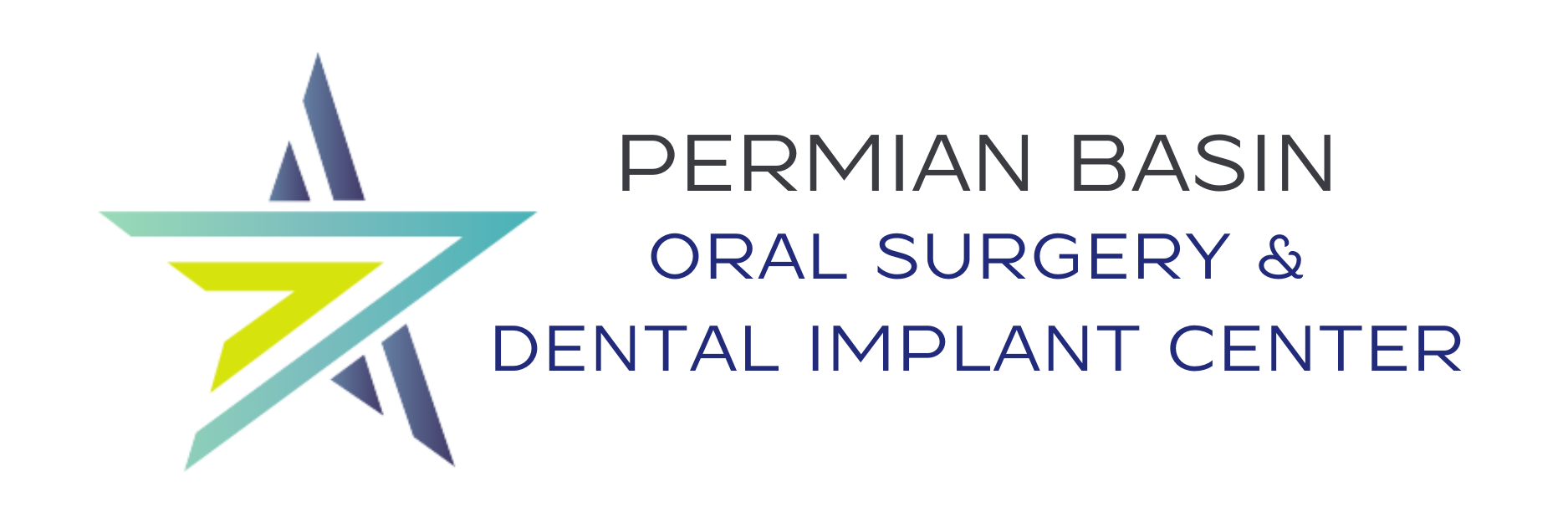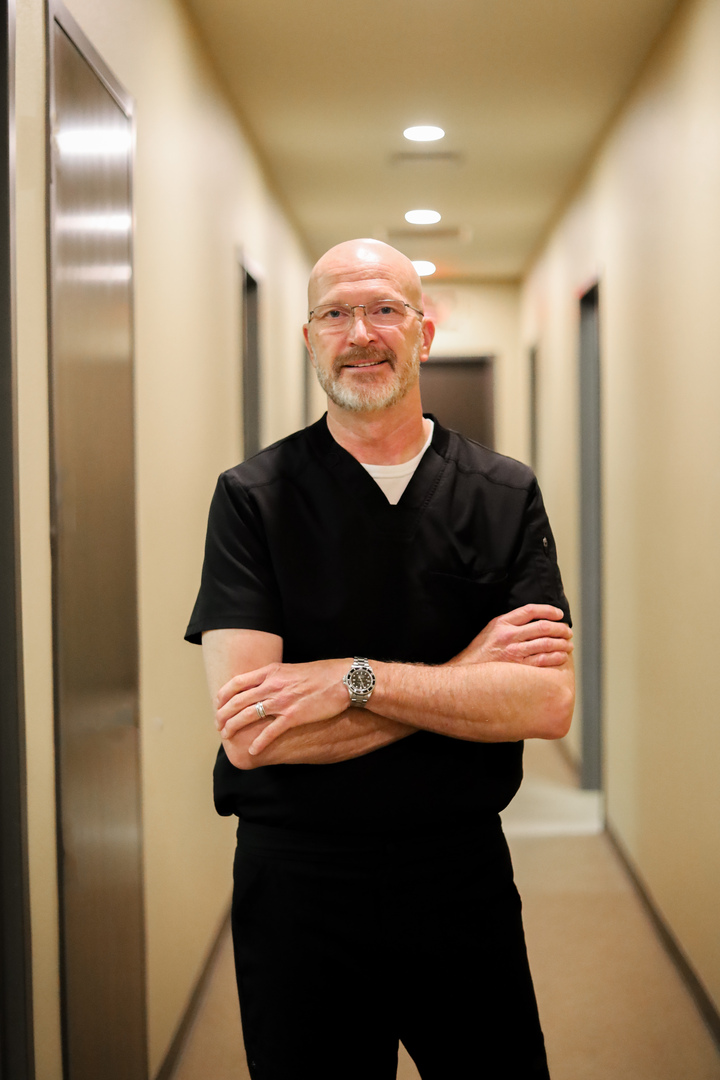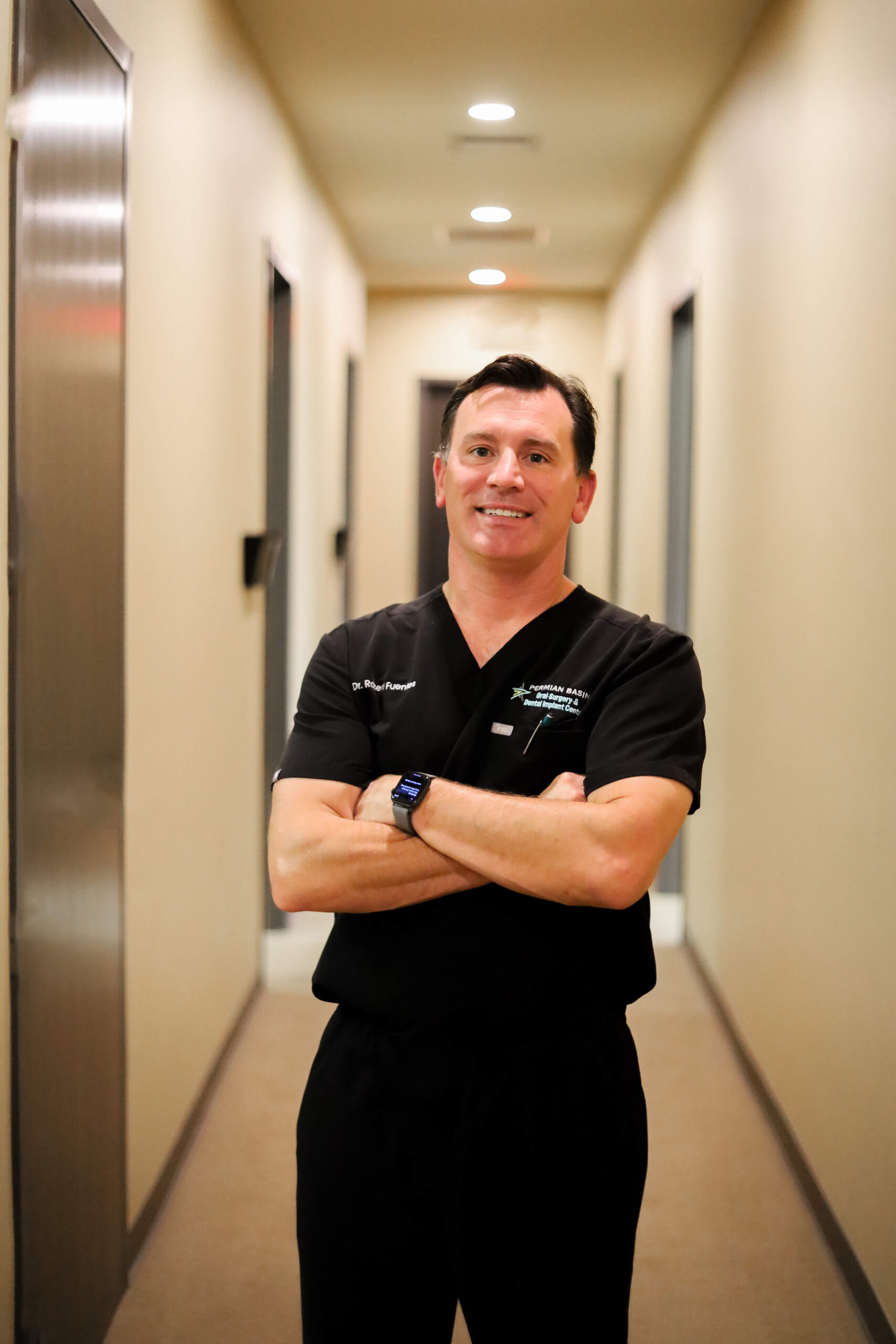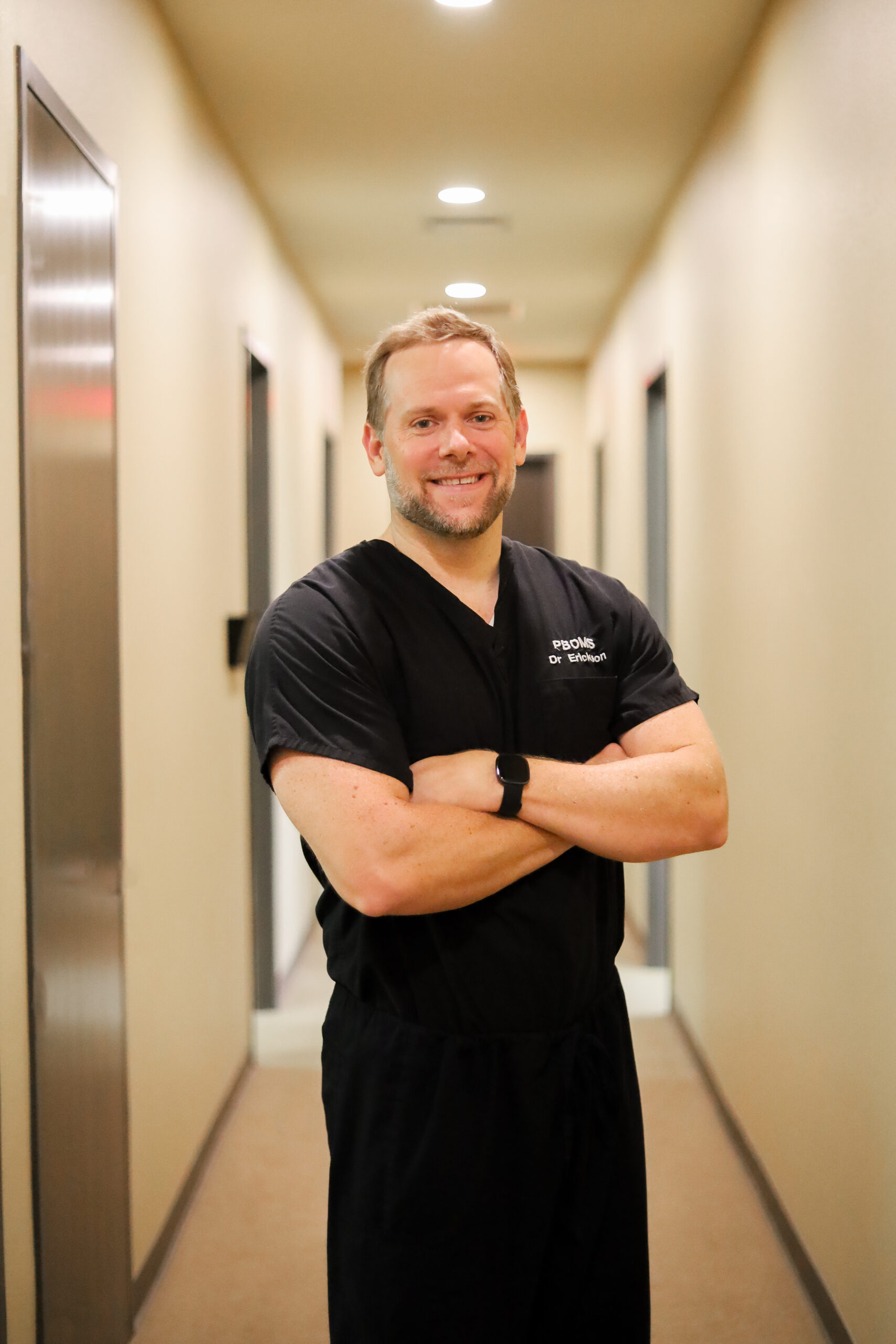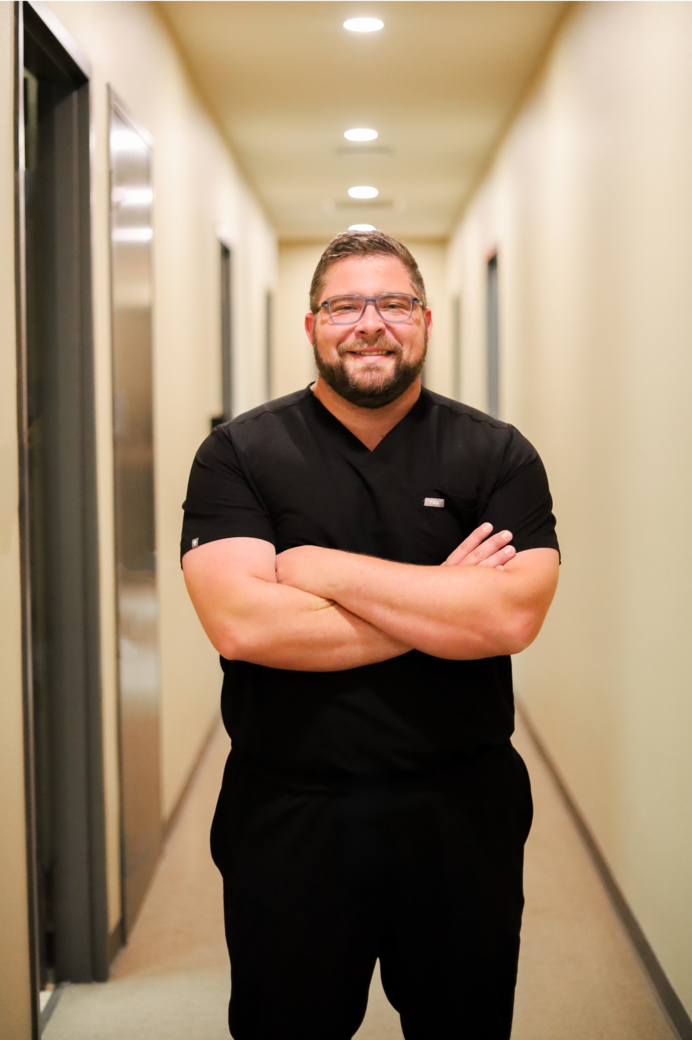Protect your oral health with a tooth extraction
Tooth Extraction
It is crucial to have healthy teeth to chew and speak clearly. However, it is a common occurrence for oral surgeons and dentists to see patients who struggle to care for their teeth properly or have damaged teeth due to conditions like periodontal disease, impacted teeth, and dental crowding. Sometimes the tooth can be restored to its original function through crowns, root canals, or fillings. If the damage to the tooth is too severe, the patient may be referred to an oral surgeon to have the tooth (or teeth) extracted. The oral surgery team at Permian Basin Oral Surgery & Dental Implant Center works hard to examine every possibility of restoring the natural tooth before recommending an extraction procedure. We will provide the best options for tooth replacement if necessary.
The following oral conditions can contribute to having a tooth, or multiple teeth, removed:
Periodontal (Gum) Disease. Periodontal or gum disease is one of the most common causes of advanced tooth decay. Periodontal disease affects the tissues around the tooth and the jaw bone beneath the gums causing tooth loosening. This bone decay will create the need for tooth extraction.
Dental Crowding. For some patients, their mouth does not have enough space in the jaw bone to accommodate the number of teeth in their mouth. This causes overcrowding, and a tooth (or teeth) must be extracted for the mouth to have proper oral function. Overcrowding can occur when the jaw bone is too short or the patient has an extra tooth or teeth in the mouth. The mouth may also be too crowded if adult teeth are beginning to grow in before their corresponding “baby” teeth have fallen out. All of these conditions attribute to the need for dental extractions.
Risk of Additional Infection. Patients with excessive tooth decay need to get it addressed promptly. Decay can spread rapidly into the center of the tooth, damaging important blood vessels and nerves. If this occurs, the patient is no longer a candidate for antibiotic treatment or root canal therapy. The patient must have the tooth removed immediately to avoid exposing the rest of the mouth to increased infection.
How do I know if I need a tooth removed?
At Permian Basin Oral Surgery & Dental Implant Center, we will perform a thorough oral examination and complete an x-ray evaluation to make an expert determination for the tooth or teeth that are at risk. Our surgeons offer a wide variety of anesthetic and sedative options. These sedatives are used to decrease anxiety and reduce pain during the procedure. There are a variety of factors that need to be considered when determining the best method for tooth removal and anesthetic for your comfort. These factors include your overall health, any presence of gum disease, your age, the tooth’s relationship to neighboring teeth and structures in the mouth, and any personal preferences you may have. Our doctors will also provide you with information for tooth replacement options, such as dental implants, which can often be placed at the same time that the tooth is removed.
If you think you may need a tooth extraction, we encourage you to contact one of our two office locations in Odessa or Midland, TX. Our friendly front desk staff is happy to help you schedule an initial consultation to meet with Dr. David Brown, Dr. Kevin Porter, Dr. Robert Fuentes, or Dr. Helaman Erickson for your initial consultation. It is our goal to restore your oral health and provide you with the best and most natural option for replacing missing teeth.
Care after a tooth extraction.
While the tooth extraction may be over quickly, the oral care that you follow after your procedure will greatly impact your overall oral health. After a tooth extraction, the surgeon will send you home to recover and will usually provide a prescription for painkillers.
Here are some helpful tips on reducing discomfort, speeding the healing process, and minimizing the risk of infection:
- Bite firmly, but gently on the gauze your surgeon provided.
- Change the gauze pads when they are soaked with blood - or leave for three to four hours.
- Take painkillers as needed.
- Do not rinse or spit forcefully for the first 24 hours. (Try to shake your head to rinse and let water pour out of your mouth to avoid dislodging the blood clot).
- Apply an ice pack to the affected area ten minutes at a time to minimize swelling.
- Do not drink from a straw for the first 72 hours.
- Do not smoke.
- On the first day, stick to soft foods such as pudding, applesauce, and soup.
- During the first night, sleep with pillows propping you up to avoid prolonging bleeding.
Get to know us.
At Permian Basin Oral Surgery & Dental Implant Center, we strive for excellence in serving you. Our board-certified surgeons and expert staff will provide the care you need and deserve.
